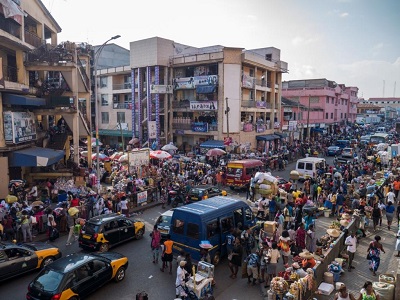AGI Raises Alarm Over Weak Consumer Demand Despite Signs of Economic Recovery
The Association of Ghana Industries (AGI) has expressed concern over a sharp decline in sales and consumer demand, despite evidence of a broader economic recovery and a significant slowdown in inflation compared to last year.
Speaking on PM Express Business Edition, AGI President Dr. Humphrey Ayim-Darke revealed that member firms have recorded a substantial drop in the consumption of locally manufactured goods since the beginning of 2025.
Dr. Ayim-Darke attributed the trend to persisting liquidity challenges, which he said continue to suppress the purchasing power of both consumers and businesses.
“We are asking for the stimulation of the economy. There are some cheap products coming in due to cheap cost of import affecting productivity. There’s a clear disconnect between macroeconomic indicators and what’s happening on the ground. Inflation has slowed, yes, and there are signs of recovery, but liquidity is tight,” he stated.
The development is particularly worrying for domestic industries that had expected demand to rebound this year following a turbulent 2024, when high inflation, currency depreciation, and sluggish growth weighed heavily on businesses.
Although inflation has fallen markedly and the Ghana cedi has shown relative stability, industry players say the anticipated boost in consumption has not materialised. Access to credit also remains constrained, limiting cash flow across the private sector.
The AGI is urging government and financial institutions to introduce targeted measures to ease liquidity pressures, including expanded access to credit, prompt payment for government contracts, and tailored support packages for struggling industries.
While recent reforms have helped stabilise the economy, the AGI’s concerns underscore the disconnect between improving macroeconomic conditions and the lived experiences of businesses and households.
The association is pushing for a more inclusive recovery agenda that addresses the operational challenges of local industries, particularly small and medium-scale enterprises (SMEs), which form the backbone of Ghana’s manufacturing sector.









